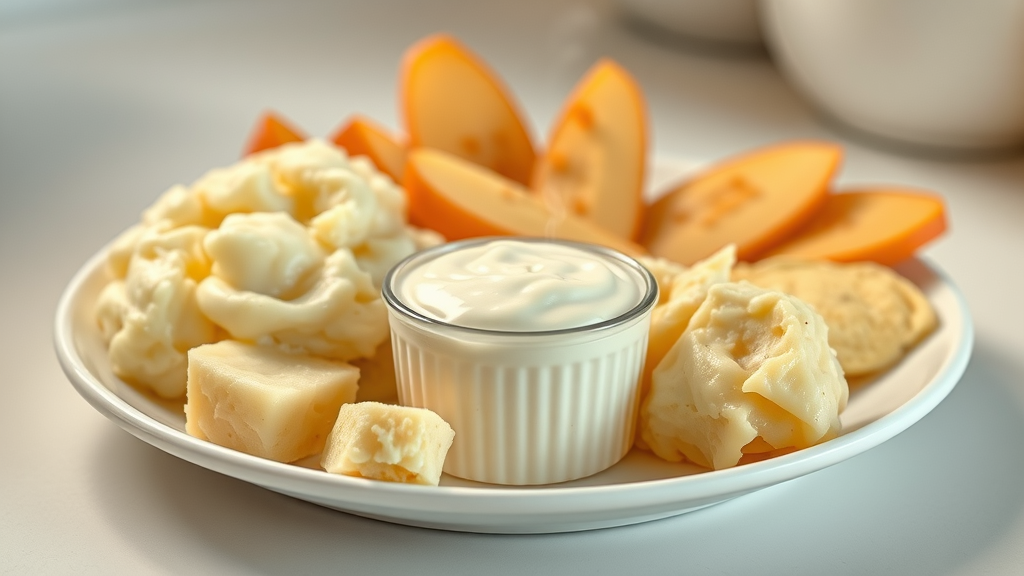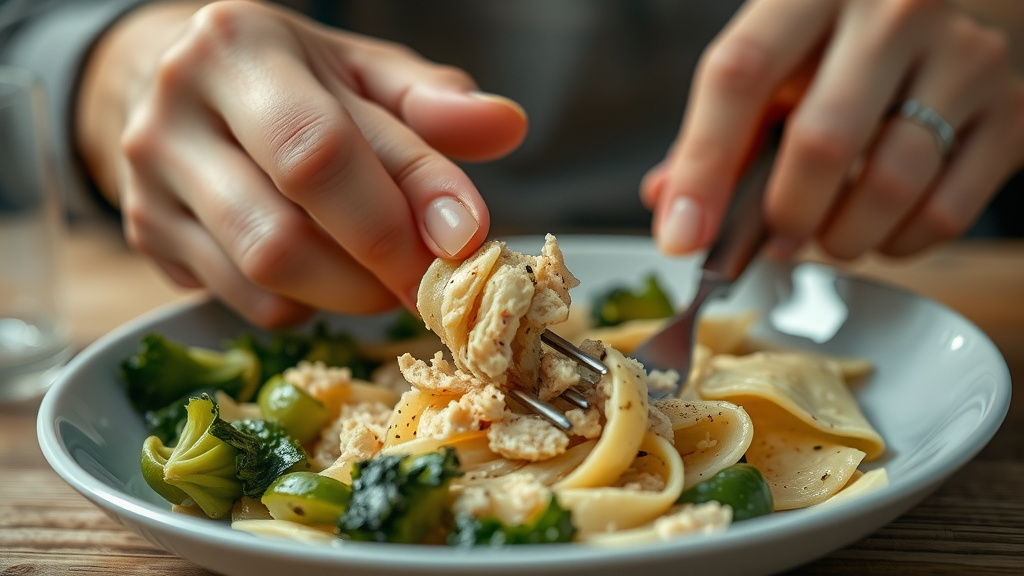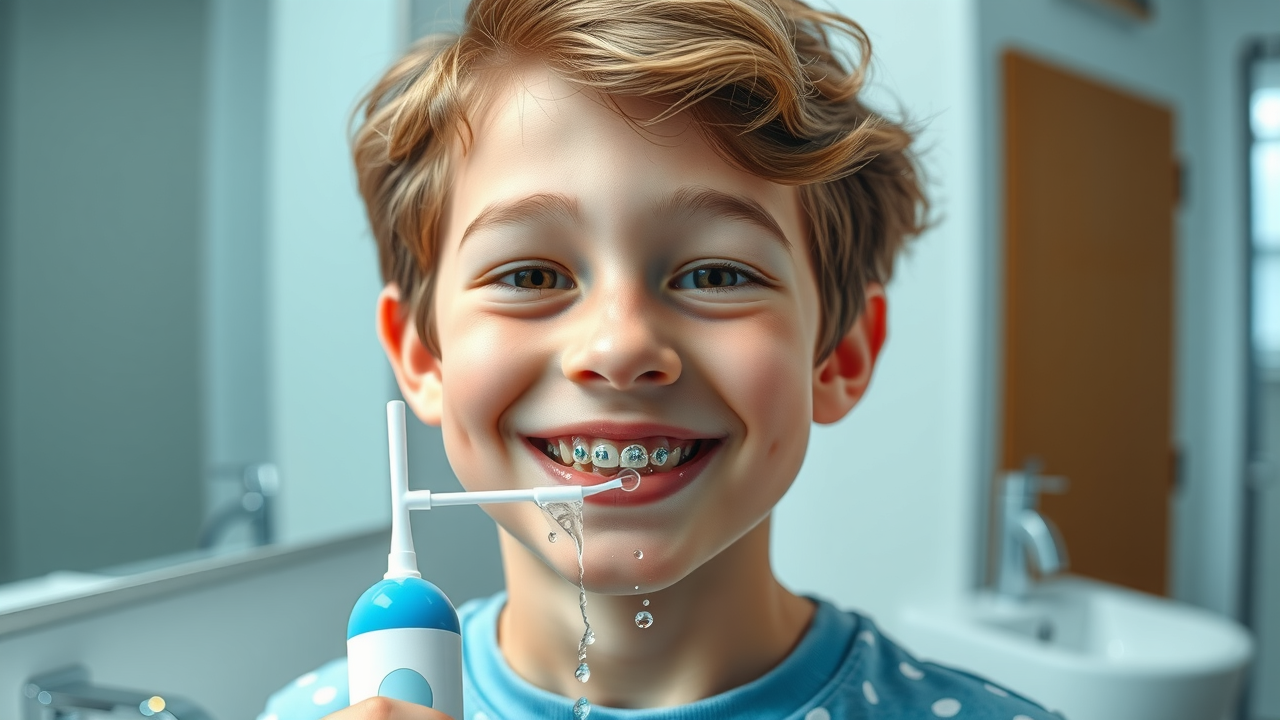Have you ever wondered why the first week with braces feels so tough — and what foods can truly make it easier? Adjusting to your new braces can be overwhelming. Soreness, sensitivity, and the challenge of finding foods you can actually enjoy can make even the most excited orthodontic patient feel uneasy. This guide is your shortcut to comfort: discover the top soothing foods, expert dietary tips, essential hygiene insights, and how you can confidently eat with braces the first week, setting the stage for a beautiful smile.
What You'll Learn About What to Eat with Braces the First Week
Key dietary tips for the first week with braces
Essential foods to eat with braces to reduce discomfort
Insights on maintaining oral hygiene while wearing braces
Foods to avoid during the initial week of orthodontic treatment

Starting Your Orthodontic Journey: What to Eat with Braces, the First Week
“Why does the first week with braces feel so overwhelming, and what can actually soothe the discomfort?”
The first week with braces is a time of big changes. Your teeth and gums are adjusting to the gentle pressure of your new orthodontic treatment, and even simple tasks like eating can feel intimidating. Knowing what to eat with braces the first week isn’t just about comfort; it’s vital for your overall success and for reducing the odds of soreness or damaged brackets. Early food choices can set the tone for a positive orthodontic journey.
When you eat with braces during the first week, you'll face soreness, especially while chewing. This discomfort is perfectly normal as your mouth adapts, but choosing the right foods and making small adjustments to how you eat can make every meal less stressful. Paying careful attention to your diet not only makes those first days more manageable but also helps your treatment progress without mishaps like broken wires or loose brackets.
Understanding the First Week of Braces
Importance of food choices during the initial week of orthodontic treatment
Common experiences: soreness and sensitivity
Adjustments to daily routines when you eat with braces
During the week of braces, the pressure from your new brackets and wires can leave your teeth feeling extra sensitive. Most people report soreness when biting, making it difficult to enjoy foods they usually love. Chewing hard food can be uncomfortable or may even cause damage to your braces. This is why switching to soothing, soft foods and learning gentle eating habits becomes so important. Remember, your mouth is healing and adjusting, so being patient and mindful with your food choices is key.
As your daily routine shifts, even simple acts like brushing and flossing change. Plaque can build up quickly around braces, which makes oral hygiene even more critical to avoid tooth decay and ensure a smooth orthodontic journey. Adopting soft foods and proper hygiene practices not only eases discomfort but sets you up for success during the entire course of your orthodontic treatment.
Why Food Selection Matters When You Eat with Braces, the First Week
Food selection during the first week with braces is more than just about what feels good; it directly impacts your comfort, healing, and the effectiveness of your orthodontic treatment. Choosing the wrong foods can cause irritation, prolong soreness, or even damage your new braces, resulting in unnecessary trips to the orthodontist. The right nutrition also supports healthy gums and teeth, which are essential for a successful outcome.
Soft foods are gentle on sore teeth and gums, and they're much less likely to cause discomfort compared to hard or crunchy food. As your mouth adjusts, these foods can help reduce swelling, and encourage quick healing. In contrast, hard foods, sticky foods, or even chewy foods can easily bend wires or pop off brackets. Prioritizing soft, easy-to-chew foods during the first week sets the stage for a smoother, more comfortable experience.
How Food Impacts Comfort and Healing During Orthodontic Treatment
Minimizing pain and irritation by choosing soft foods
Preventing brace damage with the right dietary adjustments
"Patients often underestimate how much their diet influences their experience the first week with braces." — Dr. Patel, Orthodontic Specialist
A balanced diet is crucial when wearing braces, especially during the sensitive first week. Soft foods like mashed potatoes, yogurt, and eggs are soothing because they are easy to chew and don't put extra pressure on sore teeth. Choosing these types of foods not only helps you stay nourished but also minimizes the risk of damaging your brackets and wires. Adopting this approach ensures a smoother orthodontic journey and helps you maintain good oral health from the very start.
Conversely, eating hard, crunchy, chewy, or sticky foods can damage your braces or cause unnecessary pain. By being mindful of your food selection and making informed choices, you are giving your teeth and gums the best chance to heal quickly and adapt, making the entire process less stressful.

Top 10 Soothing Soft Foods to Eat with Braces the First Week
List: Essential Soft Foods for Braces Comfort
Yogurt
Mashed potatoes
Scrambled eggs
Oatmeal
Soup (pureed/creamy)
Macaroni and cheese
Applesauce
Cottage cheese
Pudding
Bananas
All of these soft foods offer comfort, easy digestion, and are gentle on your teeth and gums. They’re also simple to prepare and can be seasoned in a variety of ways so that you don't get bored during the week with braces. Aim for variety and keep your meals interesting, as this can help you stick with your new eating plan throughout the orthodontic treatment.
Many of these foods are packed with vitamins and nutrients that support both oral health and healing, which is especially important when wearing braces. Options like yogurt, cottage cheese, and eggs provide protein; mashed potatoes and bananas offer energy; and oatmeal gives fiber to keep your diet balanced.
Nutritional Table: Best Foods with Key Benefits
Food |
Texture |
Nutritional Benefit |
Why It's Good During Week of Braces |
|---|---|---|---|
Yogurt |
Creamy |
Calcium & Protein |
Soothes sore teeth, supports bone health |
Mashed potatoes |
Soft, smooth |
Complex carbs, potassium |
Easy to eat, filling, customizable |
Scrambled eggs |
Fluffy, easy to chew |
Protein, Vitamins A & D |
Gentle on teeth, nutritious |
Oatmeal |
Warm, soft |
Fiber, iron |
Prevents hunger, easy to flavor |
Soup (pureed/creamy) |
Liquid, smooth |
Hydration, vitamins |
Hydrates and requires no chewing |
Macaroni and cheese |
Soft, cheesy |
Calcium, energy |
Comforting and easy on the teeth |
Applesauce |
Smooth |
Vitamin C, fiber |
Easy, sweet, and healthy snack |
Cottage cheese |
Creamy, curd |
Calcium, protein |
Good source of energy & easy texture |
Pudding |
Silky, soft |
Dessert, energy |
Satisfies sweet cravings without irritation |
Bananas |
Soft, creamy |
Pottasium, Vitamin C |
Easy to eat and filling |
Eating these soft foods will ensure a smooth and comfortable start to your week of braces, while also supporting a balanced diet for optimal oral health.

Foods to Avoid the First Week with Braces
Avoid Hard, Crunchy, Sticky, and Chewy Foods During the First Week of Orthodontic Treatment
Crunchy food: popcorn, chips, raw veggies
Sticky foods: caramel, toffee, gum
Chewy foods: bagels, licorice
Hard food: nuts, hard candies, ice
Eating these foods can damage your brackets and wires, setting back your orthodontic treatment. Hard food and crunchy food are particularly risky during the week with braces because they can put too much pressure on your new appliances. Sticky foods cling to brackets, increasing the risk of tooth decay—especially since cleaning teeth is a bit trickier with braces in place. Even chewy foods can tug or loosen wires, leading to extra trips to the orthodontist.
The general rule is to avoid hard, crunchy, chewy, and sticky foods for your own comfort and to protect your investment in your smile. Stick with soft foods and transition to more substantial meals only as your mouth adjusts and your orthodontist approves.
Risks of Eating the Wrong Foods with Braces
Broken brackets and wires
Increased discomfort and irritation
Compromised treatment progress
Ignoring these food guidelines during the first week with braces can result in extra pain and possibly an emergency orthodontist visit. Not only do broken brackets and wires hurt, but they also slow down your progress towards a beautiful smile. Increased discomfort and poor healing can also make you less likely to keep up with good oral hygiene, putting your oral health at risk. Always think of your food choices as an investment in the ultimate success of your orthodontic treatment.
How to Eat with Braces the First Week: Practical Tips
Adapting Eating Habits for Orthodontic Comfort
Cutting food into small pieces
Chewing with back teeth
Meaningful pauses between bites to check for bracket issues
Even the healthiest soft foods can cause discomfort if you aren't eating them properly during the week with braces. Instead of biting directly into whole foods (like apples or sandwiches), cut your meal into small, easy-to-chew pieces. This puts less stress on brackets and makes every bite easier to manage. Try to use your back teeth to chew; they're stronger and less likely to feel sore. Taking meaningful pauses between bites allows you to notice any discomfort or bracket issues right away, preventing bigger problems later.
Getting into the habit of eating slowly and mindfully during your first week with braces can prevent unnecessary pain and help you detect any problems early. Over time, these good habits will set you up for long-term oral health and a more enjoyable orthodontic journey.

Maintaining Good Oral Hygiene While Eating with Braces the First Week
Brushing and Flossing Recommendations
Brush after every meal with an orthodontic brush
Use floss threaders or water flossers
Rinse thoroughly with fluoride mouthwash
Good oral hygiene is more important than ever during your first week with braces. Food particles can easily get stuck in your brackets and wires, which can lead to tooth decay if not cleaned out properly. To maintain good oral health, it's best to brush your teeth after every meal using an orthodontic toothbrush (smaller and designed for braces) and a fluoride toothpaste. Flossing can be challenging with braces, but floss threaders or water flossers can make the job much easier. Finish your routine with a fluoride mouthwash to help strengthen enamel and wash away lingering particles.
Commit to a hygiene routine early—when you start strong during your week with braces, it becomes second nature as your treatment progresses. This dedication keeps your teeth and gums healthy and ensures that nothing stands between you and your beautiful smile.
Keeping Your Braces Clean While Eating Soft Foods
Swish with water after meals
Remove food particles gently
Even when eating soft foods, bits can stick to your appliances. Swishing with water after meals helps loosen leftover particles, making brushing and flossing more effective. Always clean your mouth gently to avoid irritating sensitive gums or shifting your brackets. Maintaining good oral hygiene helps prevent plaque buildup and keeps treatment on track.
If you find that food often gets stuck, consider carrying a travel brush with you or rinsing frequently. Even these minor steps can make a big difference during the critical first week with braces as your mouth adjusts and heals.

Week of Braces Challenges: Common Complaints and Expert Advice
Quote from an Orthodontist
"If you’re struggling during the week with braces, remember that discomfort is temporary. Dietary adjustments can make all the difference." — Dr. Miller, DMD
Tips for Reducing Soreness While Eating
Cold foods: ice cream (soft), smoothies
Rinsing mouth with cold water after meals
Feeling soreness is a universal part of the first week with braces. Luckily, small changes can help manage discomfort. Cold foods like soft-serve ice cream or smoothies can soothe tender gums and numb pain temporarily. After meals, rinsing your mouth with cold water can also reduce inflammation and make the next meal easier. While these solutions are not permanent fixes, they provide much-needed relief while your mouth adjusts and heals.
Remember, discomfort fades as your mouth becomes accustomed to wearing braces. Staying positive, sticking to your soft food plan, and maintaining good oral hygiene all contribute to a more comfortable, successful first week and beyond.
People Also Ask: What to Eat with Braces, the First Week
What fast food can I eat with braces the first week?
Answer: Opt for soft items such as mashed potatoes, mac and cheese, soft sandwiches (no crust), and ice cream. Avoid crunchy toppings or fries.
Can I eat fries with braces on the first day?
Answer: Fries are generally safe after the initial soreness subsides, but ensure they’re soft and cut into small pieces. Avoid crispy, overcooked fries that can stress new braces.
How long until I can eat normal food with braces?
Answer: Most people adjust to eating more normally by the second or third week of orthodontic treatment, but hard and sticky foods should be avoided throughout treatment.
What not to drink with braces the first week?
Answer: Avoid sugary drinks, sodas, and acidic juices, as they can exacerbate sensitivity and increase the risk of enamel damage or brackets coming loose.
FAQs: What to Eat with Braces, the First Week
Can I eat ice cream with braces the first week?
Yes! Soft ice cream or frozen yogurt can soothe swollen gums and is easy on sensitive teeth. Avoid cones or toppings which can be too crunchy or chewy.Are smoothies a good choice during the first week with braces?
Smoothies are an excellent option. They’re gentle on your mouth, packed with vitamins, and customizable to your taste. Avoid seeds or chunks of fruit that can get stuck in brackets.Should I stick to cold foods, or are warm foods also recommended with new braces?
Both are fine. Cold foods help with soreness, while warm foods like mashed potatoes or soup provide comfort and nutrients. Pick based on what feels best.How can I manage cravings for crunchy or sticky foods?
Try satisfying snacks like pudding, applesauce, or macaroni and cheese. Remind yourself this phase is temporary and focus on the variety of soft foods you can enjoy.What signs of trouble should I look for when eating with new braces?
Watch out for loose brackets, poking wires, and persistent irritation even after several days. If these occur, call your orthodontist for advice or an adjustment.
Key Takeaways: Eat with Braces, the First Week
Soft foods are essential during the week of braces to minimize discomfort.
Avoid hard, crunchy, chewy, and sticky foods with new braces.
Proper oral hygiene is critical for successful orthodontic treatment.
Conclusion: Your First Week with Braces and Next Steps
Emphasize patience and gradual dietary adaptation
Encourage regular communication with your orthodontist
Remind readers: consistent care and the right foods will lead to a healthier, happier smile
Short educational video featuring an orthodontist giving practical meal preparation and hygiene tips for the first week with braces. Includes close-up demonstrations of cutting food, eating gently, and cleaning braces after meals.
Watch practical demos for preparing braces-friendly meals right at home – from blending smoothies to mashing potatoes and safely serving warm soups.
Stay Informed: Follow Grand Strand Smile Spotlight for More on What to Eat with Braces, the First Week
Your smile is worth it — and staying informed is the first step.
Join hundreds of locals already following Grand Strand Smile Spotlight for updates, advice, and trusted care insights.
Adjusting to braces during the first week can be challenging, but selecting the right foods can significantly ease discomfort and protect your orthodontic appliances. For comprehensive guidance, consider the following resources:
“What to Eat with Braces on the First Day” (matsumotoorthodontics.com)
“Our 12 Best Tips For Your First Week With Braces” (jkortho.com)
These articles provide detailed recommendations on suitable foods and practical tips to ensure a smooth transition during your initial week with braces.
 Add Row
Add Row  Add
Add 




Write A Comment